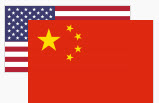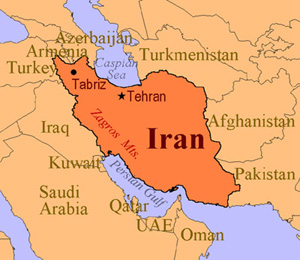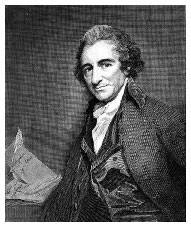We Are Losing Badly to China, and Trade Is Only a Part of It
When Donald Trump announced his candidacy, closing the southern border against “rapists and thieves” and closing the trade gap with China who have “taken advantage of us like no one in history” was uppermost in the pledges he made to his supporters. China poses threats to the United States far greater than trade — see later — but the President and his administration are now in the thick of trade negotiations His original plan was simplistic. He would slap a 45% tariff on all Chinese imports as if China would have no recourse but to meekly accept punishment for years of exploiting us. But in his first year as president, the subject of trade could hardly be broached with China. We needed their help dealing with Kim Kong-un. Not until this January did the president make a move, imposing tariffs on washing machines and solar panels in response to the pleas of Whirlpool and two U.S.-based but foreign-owned and already bankrupt panel producers. Solar panel manufacturing was long lost to China through inaction of the Bush and Obama administrations. The impact of the 30% more costly solar panels will be the cancelled contracts in the follow-on installation industry, which supports some 260,000 jobs in the U.S. China countered with an anti-dumping, anti-subsidy investigation aimed at imposing a tariff on America’s sorghum, a cereal crop fed to livestock of which 75% of our export goes to China. For the president it should be a signal that China has every intention of keeping trade unbalanced in their favor. Every tat met with a tit. Ready, fire…
In March, Mr. Trump announced an across-the-board 25% tariff on steel and 10% on aluminum, apparently taking his advisers, and far more the world, by surprise. “People have no idea how badly our country has been treated by other countries”, he said. He wanted the impost to apply to all countries, because if one country was made exempt, the rest would line up to ask for the same waiver. Which they did, with threats of retaliation otherwise. Trump would discover that most imported steel comes from allies and neighbors — Canada and Mexico being #1 and #3 — whereas only 3.5% comes directly from China. Trump is faced with granting waivers to just about every country affected. American companies that use metals in automobiles, aluminum cans, etc. have filed 8,200 exemption requests. Instead of specifically targeted actions, Trump’s intemperate blunderbuss approach is wounding everything in sight. …aim
To get back at years of China’s exploitation of the U.S., President Trump, whose mission it is to go hard against China’s predatory trade policies, had his team draw up a list of $150 billion in tariffs, this time specifically targeting China in a list of imports such as flat-screen televisions, medical devices, and so on — more than 1,300 items. Early in May our trade delegation went to Beijing with a list of demands that, if agreed to, would forestall the tariffs. They included China ceasing to subsidize advanced manufacturing industries and cutting tariffs to the same level as those imposed by the U.S. That approach guarantees failure: a threat following by tariffs followed by retaliation. Our course should instead be to match their market barricades with reciprocity — where China blocks U.S. companies and imports, block theirs in equal measure; where they offer to open only some of their financial markets to U.S. companies, shut down their access to all but a matching sliver of ours. China would have no justification to retaliate. lockdown
The Trump administration is commendably taking action against Chinese electronics companies from selling products in the U.S. and from buying into U.S. companies. Trusting China not to spy from devices embedded in their products is folly, yet only recently have government agencies and the military been told to stop buying from long-suspected electronics giant Huawei Technologies. Then came the ZTE affair. In mid-April, as enforcement for violating sanctions against Iran and North Korea and then lying about penalizing those responsible, the U.S. barred American companies from selling to ZTE, a Chinese company reliant on U.S.-made parts that make up 60% of the smart phones it sells worldwide. Its supply line cut off, ZTE was forced to shut down operations. On hearing that, Trump completely reversed field, tweeted “Too many jobs in China lost” and ordered the Commerce Department to find for ZTE “a way get back in business, fast”. He wants to keep in business a company that, along with Huawei, is in a race with American companies such as Qualcomm to develop 5G, the next generation of mobile communications, a company that broke our sanctions rules and is additionally viewed as a cyber security threat. That caused an uproar in Congress. The House Appropriations Committee tacked an amendment onto a funding bill forbidding ZTE’s rescue. Trump’s stunning capitulation caused immediate suspicion about $500 million in loans that a Chinese state-owned company had just three days earlier paid into an Indonesian company’s resort project in which the Trump Organization has a sizable investment. The funding boosts part of China’s Belt and Road project that will link all of Eurasia economically, whereas Trump cancelled out of the Trans Pacific Partnership, an alliance of a dozen Pacific Rim countries that would have acted as a counterweight. And now, as this is written, The Wall Street Journal reports that President Trump‘s move to help ZTE came just days after China approved more trademarks for his daughter’s business. Is our national security for sale? tunnel vision
Trump is fixated on reducing the “Massive Trade Deficit” we run up each year with China — $375 billion in 2017. Instead of ending its abusive trade practices, the president would be content for China to simply buy more U.S. output to narrow the deficit. A couple of hundred billion a year has been bandied about in return for our letting ZTE off the hook with only a fine. Mnuchin, who might better be thought of as Wall Street’s ambassador to the Trump administration, is all for the buy-American idea, even to the point of blocking fellow trade delegates Peter Navarro and Robert Lighthizer from meetings with the Chinese, resulting in a profanity-rich shouting match between our own negotiators. To the Pentagon’s horror, Mnuchin is even receptive to the Chinese request that we relax our export controls that prevent the Chinese from buying sensitive military gear. In contrast, Navarro and Lighthizer are focused on attacking the greatest Chinese abuses, the mercantilist practices of the Chinese that really matter: Theft of intellectual property: The Obama administration accepted vague promises by the Chinese to clamp down on theft which the Chinese never kept and nothing was done in retaliation for the Chinese stealing millions of copies of American software, films, and for cyber theft of industrial secrets. Access to China’s markets: In current talks the Chinese have proposed only limited access to their financial services fields such as banking. Doormat America allows Chinese companies unfettered access. Xi has offered a reduction of tariffs on American autos from 25% to 15% — an insulting gesture of no value (American tariffs are 2.5% for cars). In return, now that China has become the world’s biggest producers of autos and has an eye on the U.S. market, we should erect a reciprocal tariff — or the full 25% for as many years as China penalized our auto exports. Mandatory transfer of propriety industrial knowledge: To operate in China, American companies have for decades been required to partner with Chinese companies for no reason other than to hand over our proprietary technology so that China can learn how to take over an industry, then compete internationally with lower costs, then drive out the Americans. It is a marvel to behold that this country has been so ineffectual as not to ban American companies from entering into such joint ventures in their craving for momentary profits at the expense of America’s future. (We wrote of this repeatedly, beginning 5 1/2 years ago with “China Tells Us to Deposit Our Technology at Their Door“). Why haven’t western nations joined together in a coalition to refuse to comply; the practice is illegal under the World Trade Organization rules that China regularly flouts? But Trump, with no experience beyond the unilateral deals of real estate, can’t seem to see the greater strength of multilateral alliances. He goes it alone with a much weaker hand. The trade delegation came home from round one of the talks with nothing. The long tariff list has been placed on hold during talks. Even the notion of China buying more from the U.S. was in doubt as the Chinese denied that any number had been agreed to. According to Lawrence Kudlow, a fourth member of the negotiating team, the $200 billion was simply “something the president likes”. Just selling more soybeans, doing nothing to break up the technology theft of forced joint ventures, timidly accepting token market access openings instead of demanding total access, failing to threaten retaliatory tariffs and blocked access against their companies if our demands are denied — all play into China’s master plan: “Made in China 2025”. That quest is to achieve full self-sufficiency and world domination in selected key industries of the future, shutting out America altogether and needing nothing from other countries as well. Trump’s myopia of just selling more to China solves nothing. Accepting buy-American would be utter surrender. meanwhile
As we spend attention, treasure, and lives in the dustbin of the Middle East, China uses is trade surplus with America to build its military might to fulfill its other master plan: to drive the U.S. out of the Pacific. It’s a threat we have covered since 2015 in the series We covered this is in our 2015 series “War With China: Is It Already Here?“, “China’s Master Plan: Drive Us Out of ‘Their’ Pacific“, and “China’s Military Build-up — It’s Aimed at Us“.
and Mr. Trump is finding that the obverse of “Trade wars are easy to win”, as he has said, is proving true.
China’s conversion of small outcroppings in the South China Sea into island outposts has gone unchallenged, an unabashed takeover of international waters. With President Obama at his side at the White House in September 2015, President Xi Jinping stated that “China does not intend to pursue militarization” of the artificial islands. It was an outright lie. They installed barracks, then anti-aircraft batteries, then airstrips of a length suspiciously capable of handling the largest aircraft. Sure enough, in mid-May, a Chinese bomber landed on Woody Island in the Paracel chain. 
An H-6K Chinese bomber
They have placed gear for jamming communications on two islands. Earlier, China had deployed anti-ship cruise missiles and surface-to-air missiles on three converted reefs and the disputed Spratly Islands that are nearer the Philippines and Indonesia than China.
In April China staged an unprecedented show of force, sending some 50 ships including an aircraft carrier and nuclear submarines through the South China Sea with 75 fighters, bombers and helicopters overhead. American warships thas rules and is additionally viewed as a cyber security threat. That caused an uproar in Congress. The House Appropriations Committee tacked an amendment onto a funding bill forbidding ZTE’s rescue.
Trump’s stunning capitulation caused immediate suspicion about $500 million in loans that a Chinese state-owned company had just three days earlier paid into an Indonesian company’s resort project in which the Trump Organization has a sizable investment. The funding boosts part of China’s Belt and Road project that will link all of Eurasia economically, whereas Trump cancelled out of the Trans Pacific Partnership, an alliance of a dozen Pacific Rim countries that would have acted as a counterweight. And now, as this is written, The Wall Street Journal reports that President Trump‘s move to help ZTE came just days after China approved more trademarks for his daughter’s business. Is our national security for sale?
tunnel vision
Trump is fixated on reducing the “Massive Trade Deficit” we run up each year with China — $375 billion in 2017. Instead of ending its abusive trade practices, the president would be content for China to simply buy more U.S. output to narrow the deficit. A couple of hundred billion a year has been bandied about in return for our letting ZTE off the hook with only a fine. Mnuchin, who might better be thought of as Wall Street’s ambassador to the Trump administration, is all for the buy-American idea, even to the point of blocking fellow trade delegates Peter Navarro and Robert Lighthizer from meetings with the Chinese, resulting in a profanity-rich shouting match between our own negotiators. To the Pentagon’s horror, Mnuchin is even receptive to the Chinese request that we relax our export controls that prevent the Chinese from buying sensitive military gear.
In contrast, Navarro and Lighthizer are focused on attacking the greatest Chinese abuses, the mercantilist practices of the Chinese that really matter:
Theft of intellectual property: The Obama administration accepted vague promises by the Chinese to clamp down on theft which the Chinese never kept and nothing was done in retaliation for the Chinese stealing millions of copies of American software, films, and for cyber theft of industrial secrets.
Access to China’s markets: In current talks the Chinese have proposed only limited access to their financial services fields such as banking. Doormat America allows Chinese companies unfettered access. Xi has offered a reduction of tariffs on American autos from 25% to 15% — an insulting gesture of no value (American tariffs are 2.5% for cars). In return, now that China has become the world’s biggest producers of autos and has an eye on the U.S. market, we should erect a reciprocal tariff — or the full 25% for as many years as China penalized our auto exports.
Mandatory transfer of propriety industrial knowledge: To operate in China, American companies have for decades been required to partner with Chinese companies for no reason other than to hand over our proprietary technology so that China can learn how to take over an industry, then compete internationally with lower costs, then drive out the Americans. It is a marvel to behold that this country has been so ineffectual as not to ban American companies from entering into such joint ventures in their craving for momentary profits at the expense of America’s future. (We wrote of this repeatedly, beginning 5 1/2 years ago with “ May 30 2018 | Posted in World | Read More »





